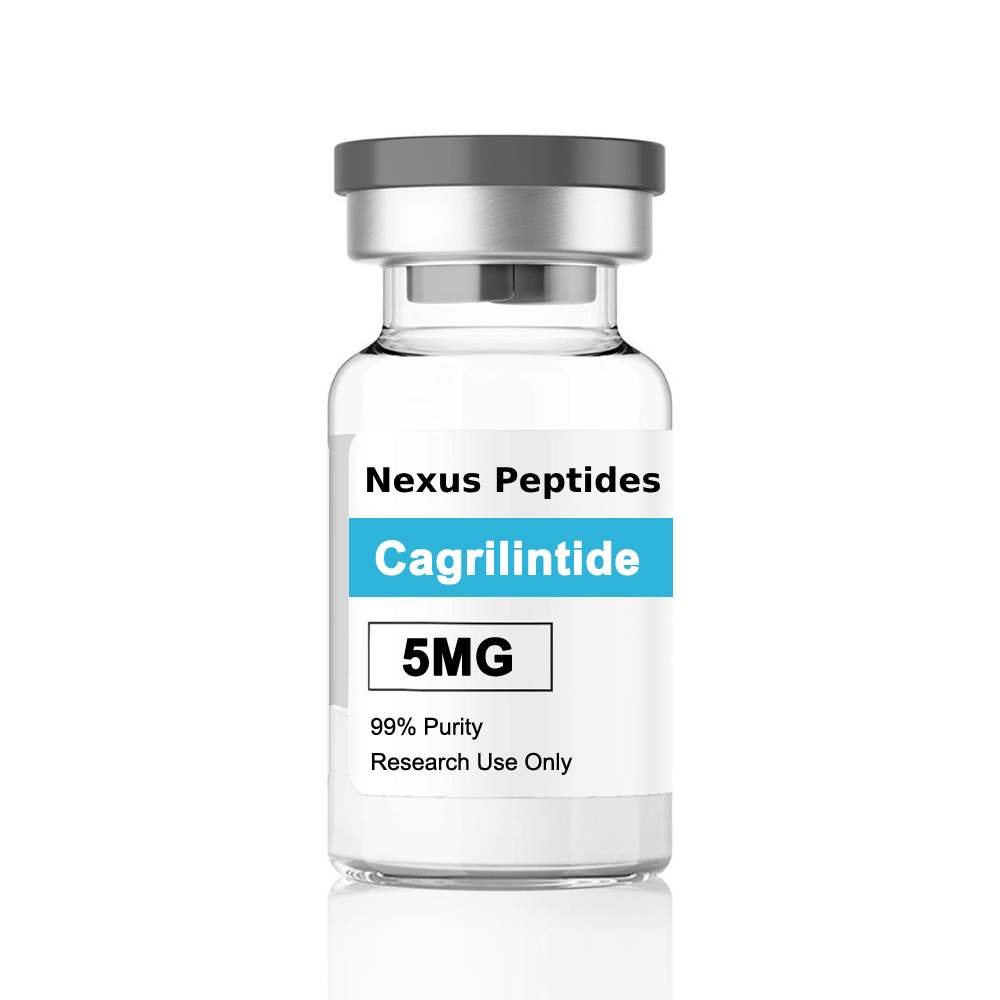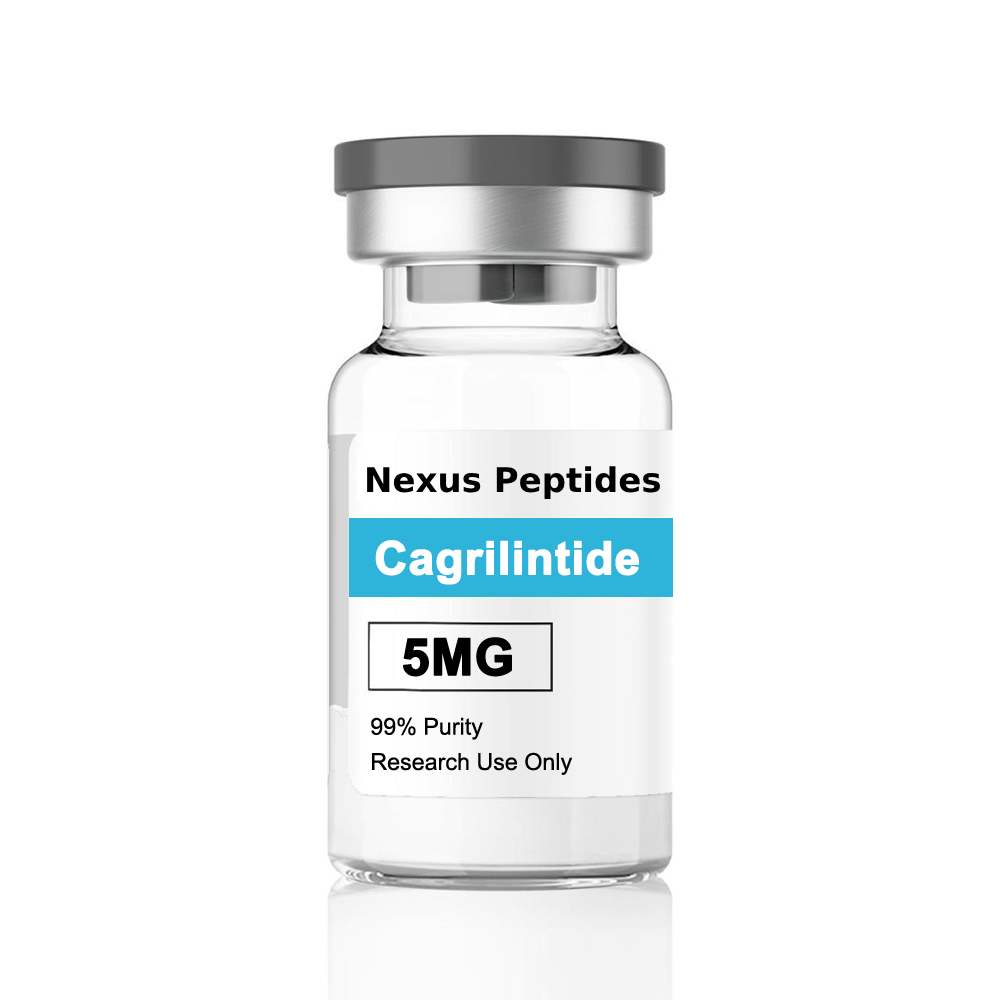Nexus Peptides
Cagrilintide: 5-10mg*10 vials
Cagrilintide: 5-10mg*10 vials
Couldn't load pickup availability
Share


Product Description: Cagrilintide
Introduction:
Cagrilintide is a synthetic peptide that has emerged as a significant compound in scientific research, particularly in the field of metabolic and energy regulation. It is a novel peptide being studied for its potential role in modulating certain biological pathways. This high-quality peptide is often used by researchers in laboratory experiments to study its molecular interactions and to understand its potential effects in various biological contexts. Cagrilintide is available for research purposes and continues to be a valuable compound for scientific exploration.
What is Cagrilintide?
Cagrilintide is a synthetic peptide that belongs to the class of amylin analogs. It is designed to mimic the action of amylin, a hormone that naturally occurs in the human body, particularly in the pancreas. Researchers are interested in studying Cagrilintide due to its potential effects on energy balance, satiety, and metabolic processes. This peptide is being investigated in preclinical studies to further understand its role in regulating appetite and energy expenditure, which could have implications in the study of metabolic conditions.
Potential Different Names:
- Cagrilintide
- AMY-100
- Amylin Analogue
- Synthetic Amylin Peptide
Chemical Formula:
- C54H75N15O11
Structure:
Cagrilintide is a peptide composed of a sequence of amino acids designed to imitate the activity of human amylin. The peptide’s molecular structure is characterized by a specific amino acid sequence that allows it to interact with amylin receptors and potentially influence various biological systems. The structure of Cagrilintide enables it to bind to certain receptors in the body, which may help researchers explore the peptide's potential effects on energy balance and metabolism.
How Does it Work?
Cagrilintide is designed to interact with specific receptors in the body, particularly those related to energy regulation and metabolic processes. It mimics the natural action of amylin, a hormone that plays a role in controlling blood glucose levels and modulating appetite. The peptide may potentially impact how the body responds to food intake, energy storage, and energy expenditure. However, it is important to note that the precise mechanisms by which Cagrilintide functions are still being studied, and ongoing research is aimed at uncovering its full potential and interaction with biological pathways.
In laboratory settings, Cagrilintide is utilized to better understand its role in regulating metabolic processes and its potential impact on appetite control, satiety, and energy expenditure. As a research tool, it provides insight into how amylin analogs can be used to explore metabolic pathways in greater depth.
Conclusion:
Cagrilintide is a synthetic peptide designed to mimic the action of amylin, a naturally occurring hormone involved in regulating appetite and energy balance. Although much of its full potential is still being explored in preclinical research, it has shown promise as a compound for investigating metabolic processes. Cagrilintide’s structure and molecular interactions make it a valuable peptide for studies in energy regulation, satiety, and metabolic health.
Disclaimer:
This product is intended for research purposes only and is not approved for human consumption, medical use, or therapeutic applications. It should only be used in accordance with proper laboratory protocols and safety guidelines. Researchers must comply with local regulations and guidelines when handling this peptide in experimental settings.


